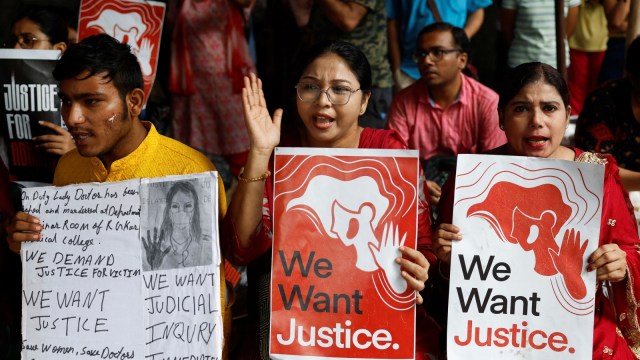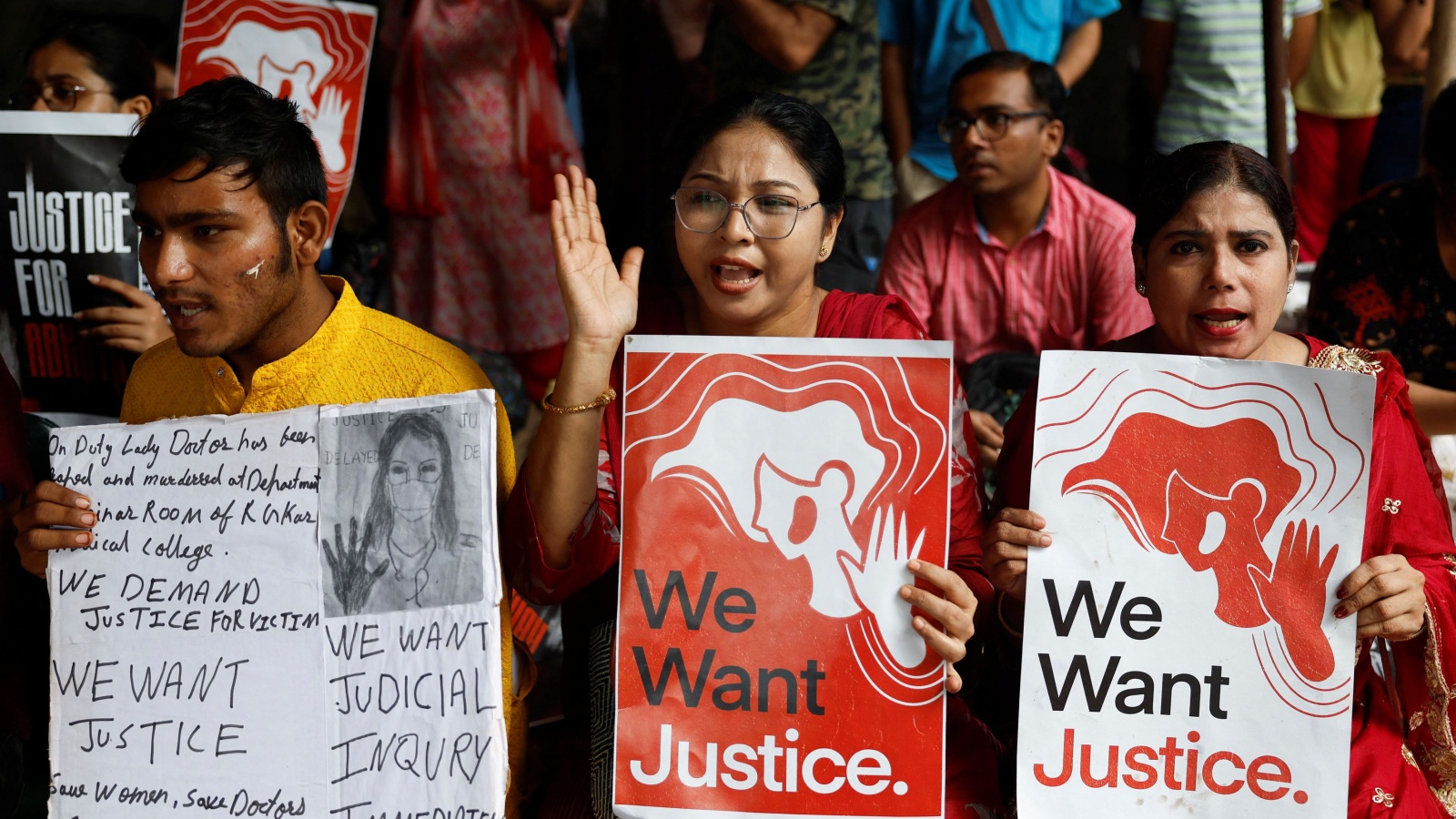
The rape and murder of a young doctor who was working at Kolkata’s R G Kar Hospital, on August 9, overshadowed this Independence Day. Several aspects of that rape shocks us out of our habituated indifference to the routine violence of rape. The sheer excess of the brutality reportedly inflicted on the young woman’s body unblinds us to the fact that rape is the exercise of power at its most brutal. It is the instrumentalisation of the body into an object that can be accessed and experienced with sadistic pleasure, extreme cruelty, insane anger or perverted liberties.
It indicates that bodies are always placed and recognised within unequal structures of power, such that some are made vulnerable to the authoritarian liberties exercised by bodies invested with power. The rape of the doctor in Kolkata forces us to recognise the many gaps that exist between the ideal of personal, political and social freedom that we celebrate and its distortions or erasure in social, political and institutional practices.
The young woman doctor, in one sense, exemplifies the equal social access to opportunities and rights that women enjoy today as citizens of a democratic nation. However, that the degree of her success can be, and is, most commonly gauged by the smallness of the elite group of women into which she has gained entry, reminds us of the long and difficult historical struggle by women that has preceded her personal achievement as a woman. The easiness of her rape and the institutional and political management of her rape force us to take a relook at whether citizenship of a democratic independent nation can be equated with freedom and equality for women.
Reports on the rape inform us that although CCTV cameras had been installed in the hospital they were inadequate in immediately leading to the detection of the criminal or preventing the crime. The installation of such cameras alerts us to the fact that public institutions like hospitals are not completely safe for women and that they need the extra protection of surveillance devices. That even the technological eye of the camera, which is capable of continual, sophisticated and unimpeded surveillance, was incapable of protecting the young woman indicates that women are perpetually vulnerable in public institutional spaces. The fact that the doctor had to take recourse to a seminar hall in order to rest in between her gruelling schedule of duties, indicates the indifference of institutions to the responsibility of taking care of and protecting those who work within and for them, especially women.
Police investigation has led to the arrest of a civic police volunteer who has allegedly confessed to the crime. His association with the Kolkata Police gave him the power of easy access to the hospital and, if proved guilty, the power to easily and noiselessly brutalise a woman’s body. Patriarchy, while conflating masculinity with strength and valorising this strength as socially necessary for the protection of the weak, glosses over the brutal purposes for which masculine strength can be and has been used. By valorising and institutionalising what it naturalises as masculine strength, patriarchy allows for, and eases the predatory and criminal exercise of this strength.
News reports tell us that both the hospital and the state seemingly gtried to hide the fact of the rape and protect the principal of the hospital. The principal, Dr Sandip Ghosh, resigned on August 11 and was immediately appointed to a high position in another Kolkata hospital.
The most incriminating evidence against a malfunctioning or non-functional democracy is the collusion by institutional and state authorities with criminal forces. Such collusion violates and threatens the principle of the freedom and equality of all citizens, which is foundational to the functioning of a democracy. It also drives those marginalised by the social hierarchies of gender, caste, class or religion to the edge of a precarious life and even death. This Independence Day has been stained with the dark shadow of such a breach of democratic principles and the destruction of democratic values that we celebrate on August 15 every year.
The writer is professor, department of English, Mangalore University
© The Indian Express Pvt Ltd
First uploaded on: 17-08-2024 at 14:00 IST



